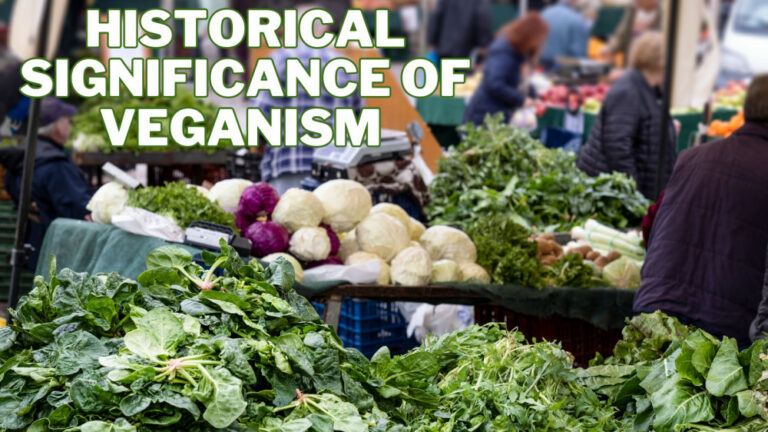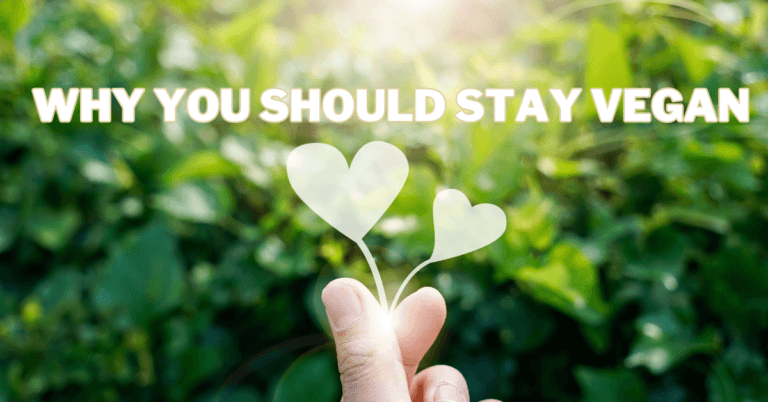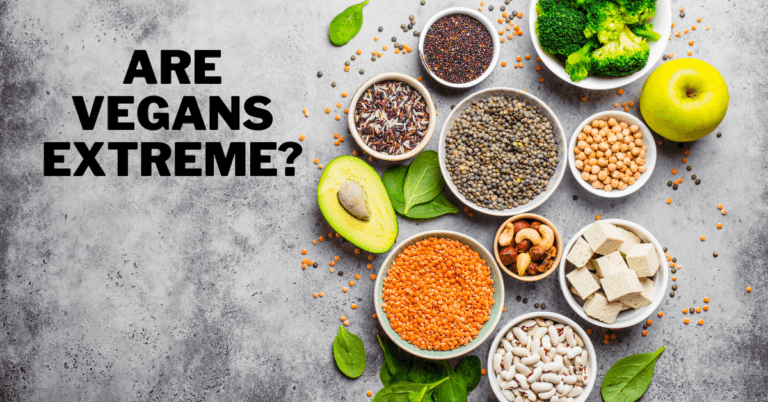How To Live A Vegan Lifestyle
How To Live A Vegan Lifestyle
Living a vegan lifestyle extends beyond merely adjusting your diet. It's about embracing a philosophy that respects animal life and promotes a more sustainable way of living.
This lifestyle choice involves abstaining from animal products in all aspects of life, from food to clothing.
For those considering this compassionate pathway, it begins with educating oneself about the implications of animal consumption and exploring plant-based alternatives that do not compromise nutrition or taste.
How to live a vegan lifestyle extends beyond adjusting your diet and involves embracing a philosophy that respects animal life and promotes sustainability.
It requires a willingness to explore new foods, adapt recipes, and sometimes advocate for animal rights. Despite the challenges, living vegan offers a rewarding journey towards a healthier self and a more ethical world.
With a growing community and increasing availability of vegan options, making the switch has always been challenging.
This article will guide you through the essentials of adopting a vegan lifestyle, from navigating dietary changes to making ethical consumer choices.

Understanding Veganism
A vegan's diet and way of life prohibit the consumption of animal products or byproducts, including meat, dairy, eggs, honey, and fur and leather goods.
This distinguishes it from vegetarianism, which primarily excludes meat but often includes dairy and other animal-derived products. The motivations behind veganism include ethical concerns, environmental considerations, and health benefits.
Ethically, vegans support animal rights and welfare and are against the mistreatment and exploitation of animals for clothes, food, or any other reason.
This ethical position stems from the conviction that animals should be treated with dignity and kept safe.
Veganism is considered a sustainable lifestyle choice. Animal husbandry greatly increases water usage, deforestation, pollution, and greenhouse gas emissions.
By abstaining from animal products, vegans want to lessen their environmental impact and encourage a more sustainable way of life.
A well-planned vegan diet low in saturated fats and high in fiber and nutrients can prevent heart disease, hypertension, type 2 diabetes, and several malignancies.
However, vegans must be aware that they can more frequently receive vital nutrients—like vitamin B12, iron, calcium, and omega-3 fatty acids—in animal products by carefully organizing their diets or taking supplements.
How To Live A Vegan Lifestyle
Living a vegan lifestyle involves more than just avoiding animal products in your diet.
It's also about making choices that minimize harm to animals, the environment, and, often, your health. Here are some key aspects:

1. Educate Yourself About How To Live A Vegan Lifestyle
People choose veganism for various reasons, including animal welfare, environmental concerns, and health benefits.
Animal welfare is a primary motivation, as vegans seek to avoid supporting industries that exploit and harm animals for food, clothing, and other products.
People who adopt a vegan lifestyle do so to lessen animal suffering and advocate for animals' moral treatment.
Living a vegan lifestyle is heavily influenced by environmental concerns as well. Animal agriculture is one of the main causes of water pollution, greenhouse gas emissions, and deforestation.
By adopting a vegan diet, people can reduce their environmental impact and the harm that animal agriculture causes. In addition, many choose to follow a vegan diet due to potential health benefits.
A well-planned vegan diet is full of vitamins, minerals, and antioxidants. It may be associated with a lower risk of acquiring heart disease, diabetes, and certain types of cancer.

2. Start Slowly
Making sustainable lifestyle changes at your speed, like increasing the amount of plant-based meals in your diet, is an integral part of adopting a vegan lifestyle.
Let's start small. This enhances the possibility of long-term success by enabling people to make durable changes at their own pace.
To achieve this, replace meat with plant-based protein sources a couple of times a week instead of adding an extra serving of veggies. Gradually reduce your consumption of animal products by replacing them with vegan alternatives.
For example, try plant-based milk in your cereal or a veggie burger instead of a beef burger. Experiment with new recipes and foods to find what works best for you.
Starting slowly also allows you to adjust to the changes in your diet and lifestyle gradually. You can learn more about veganism, discover new foods, and find vegan-friendly restaurants and products in your area.
By taking small steps, you can make the transition to a vegan lifestyle more manageable and enjoyable.
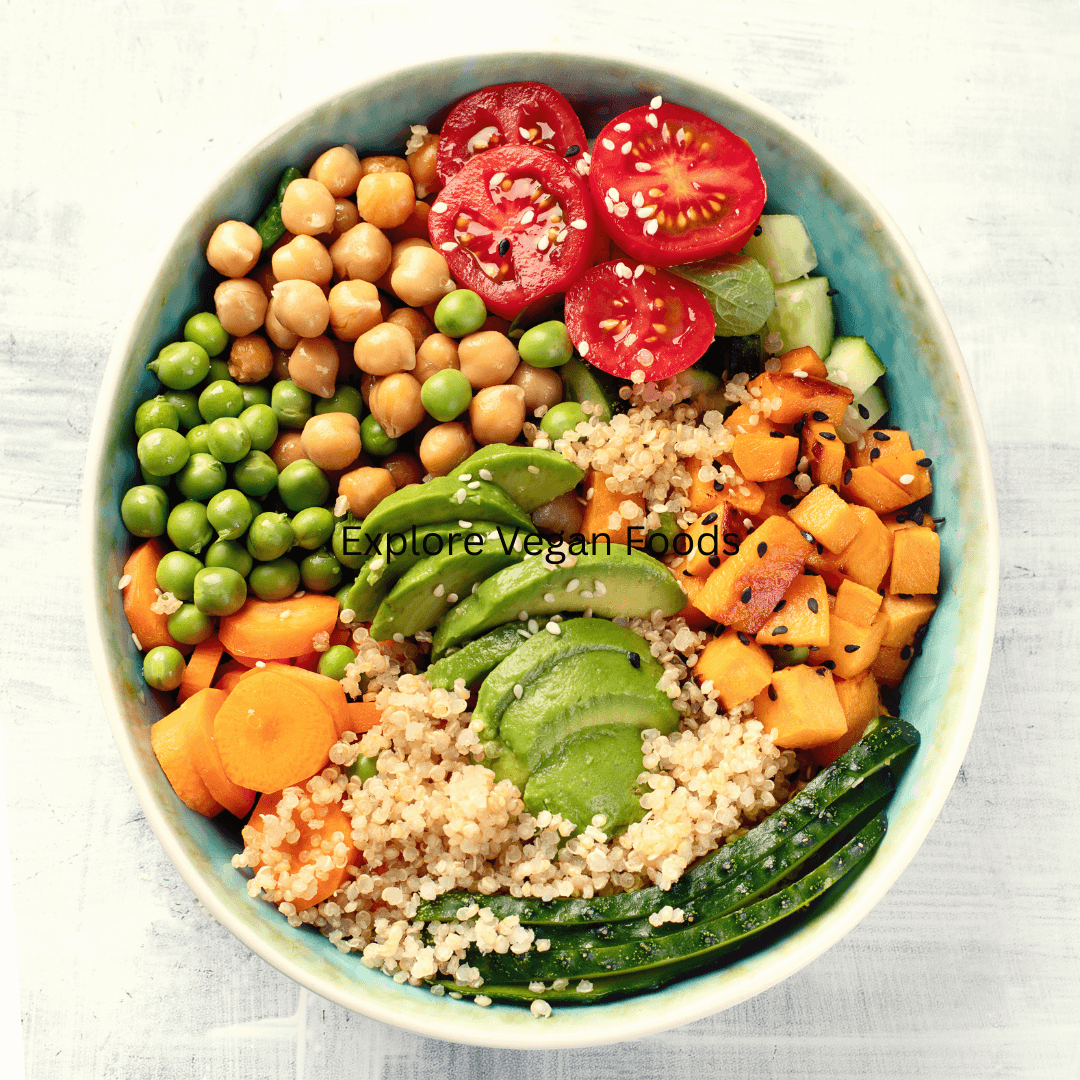
3. Explore Vegan Foods
Exploring vegan foods opens up a world of delicious and nutritious options. It's a chance to get creative in the kitchen and discover new flavours and ingredients.
Start by trying vegan versions of your favourite dishes. Plant-based alternatives exist for almost every traditional dish, from burgers to pizzas to ice cream.
You might be surprised at how tasty and satisfying these vegan alternatives can be. Additionally, explore cuisines naturally featuring plant-based ingredients, such as Mediterranean, Indian, and Thai cuisine.
These cuisines often use a variety of spices, herbs, and vegetables to create flavourful and satisfying dishes.
Experimenting with new recipes and foods can also help you discover a whole new world of ingredients, such as nutritional yeast, tofu, tempeh, and jackfruit, which can add depth and complexity to your meals.
Exploring vegan foods is a great way to diversify your diet and support your health and the environment. It can be a fun and rewarding journey that opens up a new world of culinary possibilities.

4. Embrace Imperfection Living A Vegan Lifestyle
Embracing imperfection is a key aspect of living a vegan lifestyle sustainably, recognizing that transitioning to veganism is a journey with inevitable challenges and learning opportunities.
Transitioning to veganism is a journey, and it's natural to encounter challenges along the way. It's important to remember that nobody is perfect, and making mistakes is a normal part of the learning process.
Allowing yourself to make and learn from mistakes can help you grow and become more confident in your vegan lifestyle.
Celebrate the small victories, such as trying a new vegan recipe or finding a new favorite vegan restaurant. By embracing imperfection, you can also cultivate compassion for yourself and others.
Recognize that everyone's journey to veganism is unique and that it's okay to take your time to adjust to this new way of living.

5. Read Labels
A crucial part of living a vegan lifestyle is reading labels carefully, ensuring that packaged foods do not contain hidden animal-derived ingredients, and looking for products labelled as “vegan” or “certified vegan.”
Look for products labelled as “vegan” or “certified vegan” to ensure they meet your dietary preferences.
It's also important to familiarize yourself with common non-vegan ingredients. Some ingredients to watch out for include:
Gelatin
Often found in gummy candies, marshmallows, and certain desserts.
Carmine (or cochineal)
Carmine is a red food colouring made from crushed insects commonly found in candies, beverages, and cosmetics.
Casein
A milk protein found in some non-dairy cheeses and processed foods.
Whey
A byproduct of cheese production, often found in baked goods, protein powders, and snack foods.
By reading labels and familiarizing yourself with these ingredients, you can make more informed choices and avoid accidentally consuming animal products.
Additionally, look for vegan certification logos, such as the Vegan Society's sunflower logo or the Certified Vegan logo, which indicate that a product meets strict vegan standards.

6. Volunteer For Animal Sanctuaries
Volunteering at animal sanctuaries offers a profound and eye-opening experience for those interested in a vegan lifestyle.
It allows one to establish a personal connection with animals, encouraging compassion and empathy.
Working directly with rescued animals allows volunteers to witness firsthand the impact of animal agriculture and the importance of animal welfare.
This experience can be a powerful motivator for maintaining a vegan lifestyle as volunteers better understand the lives of animals raised for food, clothing, and other products.
Furthermore, volunteering at animal sanctuaries can be educational, providing insights into animal behaviour, care, and the effects of animal exploitation.
It can also be a rewarding and fulfilling experience, as volunteers contribute to the well-being of the animals and support the sanctuary's mission.
Volunteering at animal sanctuaries can be a transformative experience that strengthens one's commitment to veganism and inspires advocacy for animal rights and welfare.

7. Find Vegan-Friendly Restaurants
Finding vegan-friendly restaurants can greatly enhance the dining experience for those following a vegan lifestyle.
These restaurants offer various plant-based options, making finding delicious and satisfying meals easier without compromising dietary preferences.
Many restaurants now feature vegan or vegetarian sections on their menus, making it easier to identify suitable options.
Some establishments even offer exclusively vegan menus, providing various choices from appetizers to desserts. Exploring vegan-friendly restaurants can also introduce you to new flavours and cooking styles.
It's a great way to discover innovative plant-based dishes that you may not have tried before. Additionally, dining at vegan-friendly restaurants can be a social and enjoyable experience.
You can share your love for vegan food with friends and family and even introduce them to the deliciousness of plant-based cuisine.
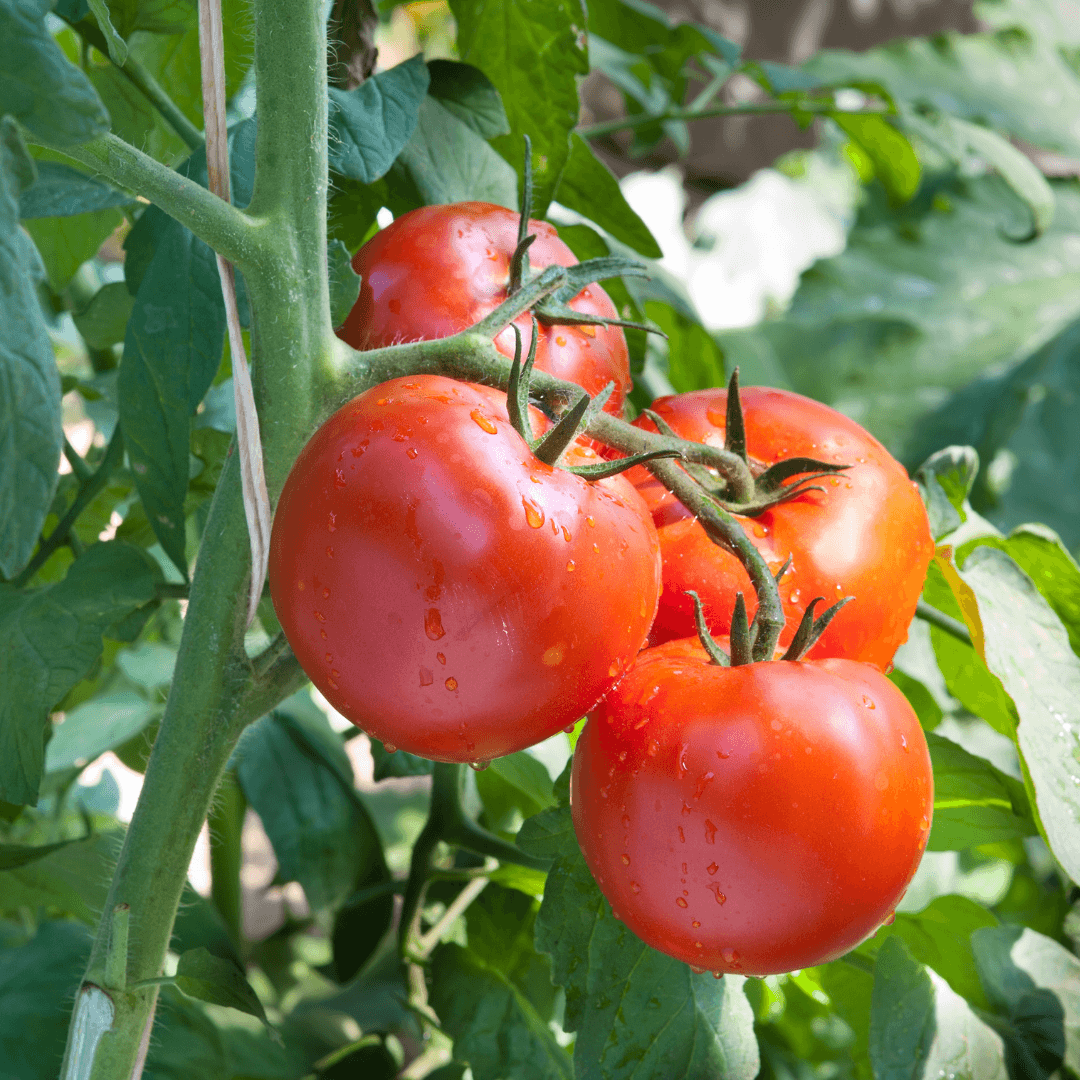
8. Grow Your Food
Growing your food is a rewarding aspect of living a vegan lifestyle. It fosters a deeper connection to your food and reduces environmental impact by producing nutritious, sustainable food.
By growing fruits, vegetables, and herbs in your garden or even on a small balcony or windowsill, you can directly contribute to producing nutritious and sustainable food.
Leading a vegan lifestyle includes cultivating your food, which can help you reconnect with nature and understand the cycles of development and harvest while lowering your dependency on industrially grown products and their related environmental effects.
Food gardening can help create a more sustainable food system and lessen one's carbon footprint. Reconnecting with the natural growth and harvest cycles through food gardening can be a therapeutic experience.
This meditative and therapeutic exercise can also help one appreciate the labour and resources required to produce the food we consume.

9. Learn About Vegan Fashion
Learning about vegan fashion involves exploring clothing and accessories that are cruelty-free and environmentally sustainable.
This means choosing items that are made without the use of animal products and are produced in a way that minimizes harm to the planet.
One aspect of vegan fashion is choosing materials not derived from animals, such as organic cotton, hemp, and bamboo, and synthetic fibres like polyester and nylon.
These materials are often more sustainable than animal-derived ones, as they require fewer resources to produce and do not involve animal exploitation.
Another important consideration in vegan fashion is the treatment of workers in the fashion industry. Look for brands prioritizing fair labour practices and transparency in their supply chains. Additionally, vegan fashion encourages the reuse and recycling of clothing to reduce waste.
Shopping at thrift stores, participating in clothing swaps, and supporting brands that offer recycling programs are all ways to contribute to a more sustainable fashion industry.
By learning about vegan fashion and making conscious choices about the clothing and accessories we purchase, we can reduce our impact on animals and the environment while supporting a more ethical and sustainable fashion industry.
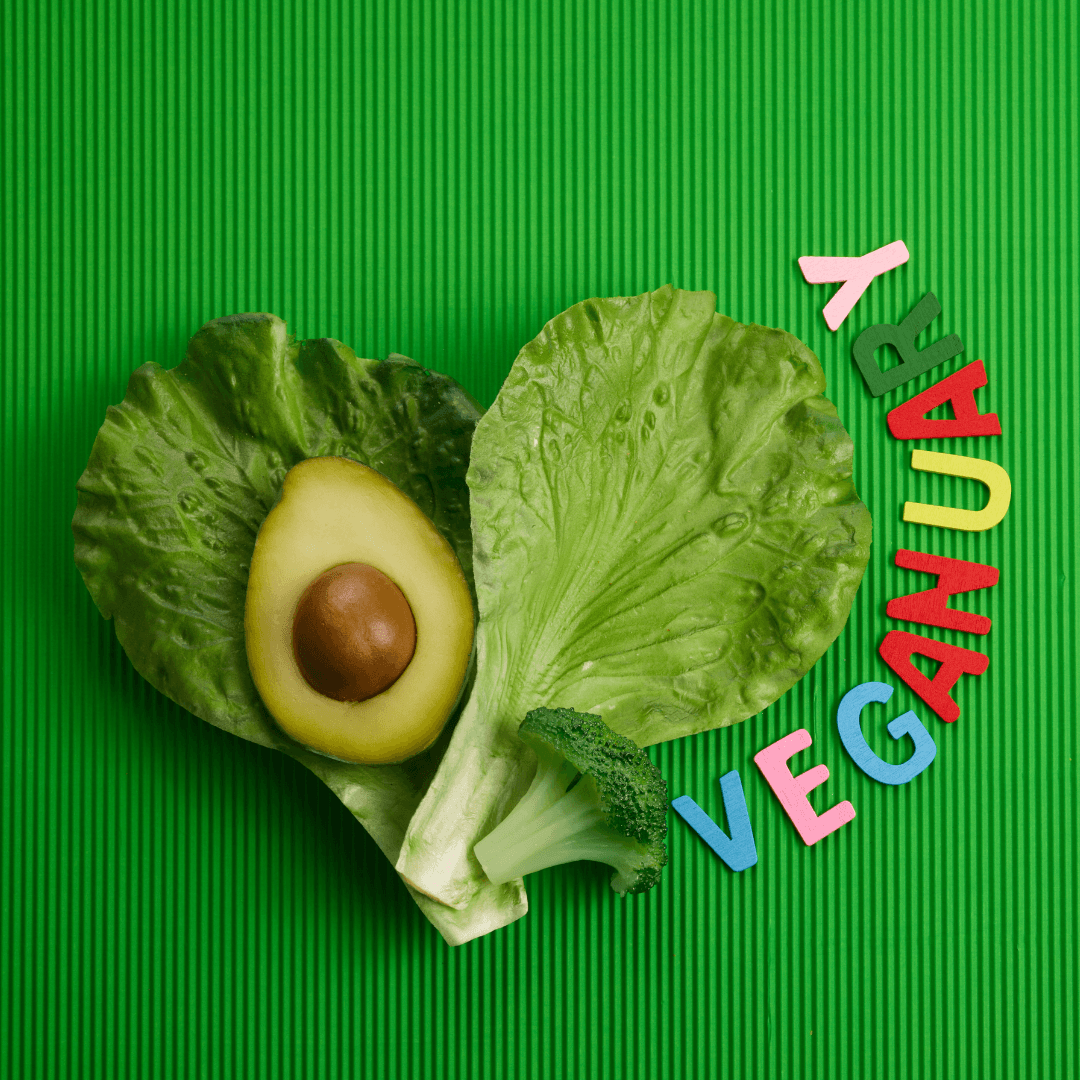
10. Try Vegan Challenges To Kickstart Living A Vegan Lifestyle
Participating in vegan challenges, such as Veganuary, can be a great way to kickstart your journey toward a vegan lifestyle and connect with a larger community of like-minded individuals.
These challenges typically involve committing to a vegan diet for a month, and they often provide resources, recipes, and support to help you along the way.
By participating in a vegan challenge, you can set clear goals and timelines for yourself, making the transition to a vegan lifestyle feel more manageable and achievable.
Learning more about veganism, discovering new foods and recipes, and connecting with others on a similar journey can be fun and engaging.
Moreover, participating in a vegan challenge can help you become more aware of the impact of your food choices on animals, the environment, and your health.
It can be a transformative experience that inspires you to continue living a vegan lifestyle even after the challenge has ended.
Vegan challenges are a great way to jumpstart your vegan journey, gain support and inspiration from a community of like-minded individuals, and discover the many benefits of a vegan lifestyle.

11. Explore Global Vegan Cuisines
Exploring global cuisines is an exciting aspect of living a vegan lifestyle. Many traditional cuisines worldwide offer plant-based dishes with unique flavours and cooking techniques from different cultures.
For example, Mediterranean cuisine features a wide range of vegan-friendly dishes, such as falafel, hummus, and tabbouleh, packed with flavour and nutrients.
Indian cuisine offers many vegan options, including dal, vegetable curries, and dosas, which showcase diverse spices and cooking methods.
Japanese cuisine includes many vegan dishes, such as vegetable sushi, tempura, and tofu-based dishes, which highlight the simplicity and elegance of Japanese cooking.
Mexican cuisine offers a variety of vegan-friendly options, such as bean tacos, guacamole, and vegetable tamales, which showcase bold flavours and fresh ingredients.
Exploring these and other global cuisines can inspire you to try new ingredients, flavours, and cooking techniques in your kitchen.
It can also deepen your appreciation for the diversity of plant-based foods and the cultural significance of vegan cuisine worldwide.
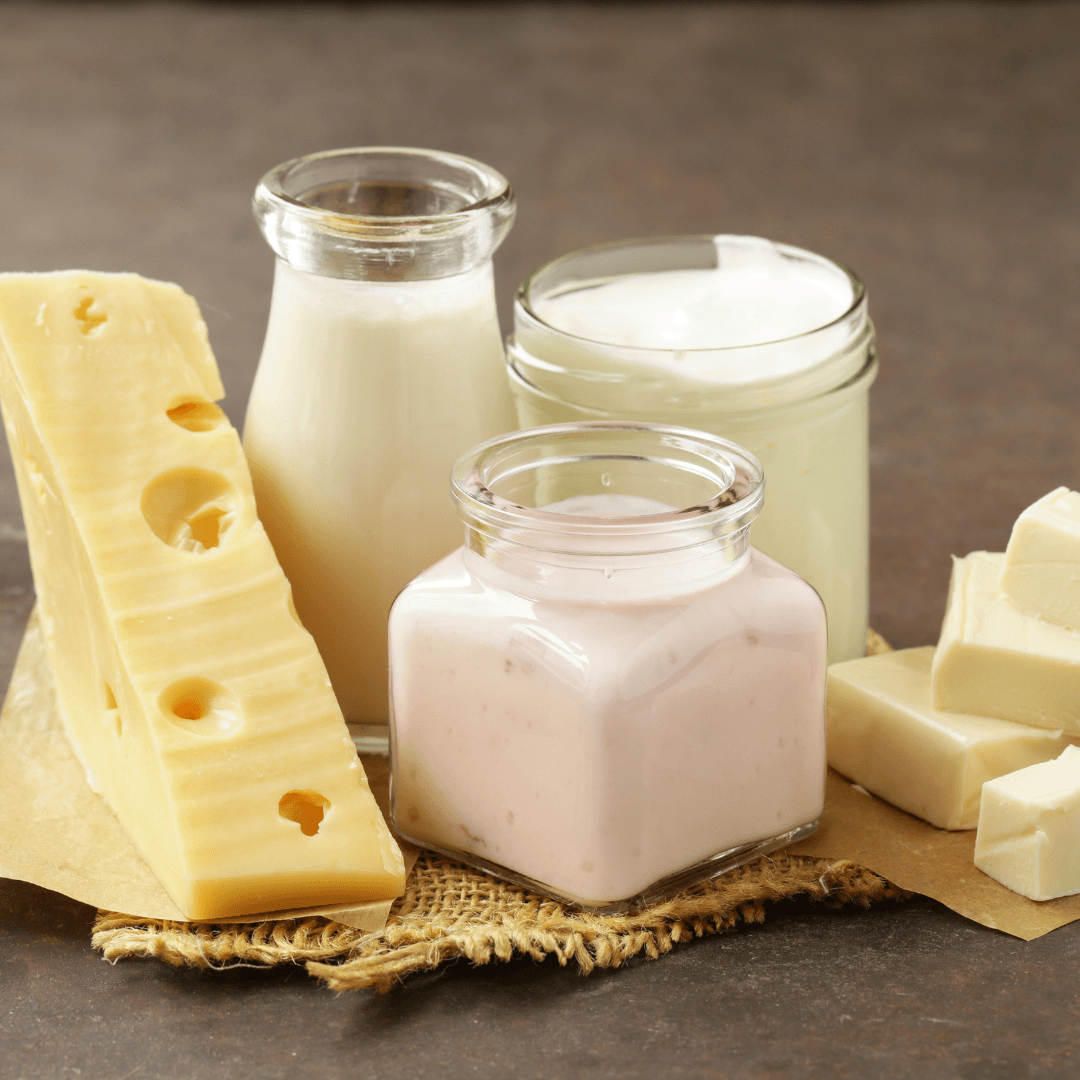
12. Replace Non-Vegan Products
Replacing non-vegan products with vegan alternatives is a practical step in living a vegan lifestyle. It ensures that your choices align with your values and contribute to a more compassionate and sustainable world.
As you run out of non-vegan items, such as dairy milk, leather shoes, or products tested on animals, you can replace them with vegan options that align with your values. Many vegan food options, such as plant-based cheese, meats, dairy products, and sweets, can be vegan.
These alternatives are often just as delicious and nutritious as their non-vegan counterparts, making transitioning to a vegan diet easier and more enjoyable.
When it comes to clothing and personal care products, look for items made from cruelty-free materials and not tested on animals.
Many companies now offer vegan alternatives to traditional products, including shoes made from synthetic materials, cruelty-free cosmetics, and toiletries free from animal ingredients.
By gradually replacing non-vegan products with vegan alternatives, you can reduce your impact on animals and the environment while supporting companies that share your values.
It's a simple yet impactful way to live a more compassionate and sustainable lifestyle.
Conclusion
In conclusion, living a vegan lifestyle is a journey of compassion, sustainability, and mindfulness.
Transitioning to a vegan lifestyle can be a gradual process, and it's okay to start slowly and make small changes over time.
Educating oneself about veganism, exploring new foods and recipes, and finding support from vegan communities make the transition smoother and more enjoyable.
Embracing imperfection and allowing room for growth and learning are important aspects of a vegan lifestyle.
It emphasizes progress over perfection and recognizes that each step taken towards veganism contributes to a more compassionate and sustainable world.
It's about progress, not perfection, and every step taken towards a vegan lifestyle is a step towards a more compassionate and sustainable world.
Ultimately, living a vegan lifestyle is not just about what we eat or wear; it's about aligning our actions with our values and making choices that reflect our commitment to kindness, health, and environmental stewardship.
Living vegan can contribute to a more ethical, sustainable, and compassionate world for all beings.
I trust you enjoyed this article about How To Live A Vegan Lifestyle. Please stay tuned for more blog posts soon. Take care!
JeannetteZ
>>>Please click here to read my Vegan Travel Guides To World Destinations<<<
>>>Want To Learn How To Create Delicious, Cruelty-Free, Healthy AND 100% Vegan Meals? Try These Awesome Vegan Cooking Courses With A Free 7-DAY MEMBERSHIP<<<
Your Opinion Is Important To Me
Ideas? Thoughts? Questions? I would love to hear from you. Please leave me your questions, experiences, and remarks about the How To Live A Vegan Lifestyle article in the comments section below. You can also reach me by email at Jeannette@LivingTheVeganLifestyle.org.
Disclosure
This post may contain affiliate links. I earn from qualifying purchases as an Amazon Associate and other affiliate programs. Please read my full disclosure.
Here are links to some of my favourite articles:
Best Vegan Supplements In The UK
Best Vegan Restaurants In Buenos Aires, Argentina
Best Vegan Restaurants In La Paz, Bolivia

